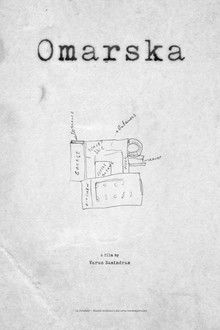101 million Americans drink wine. Over 1/3 of that wine comes from overseas and a vast majority of the remainder comes from Northern California. We've all heard of Napa, Bordeaux and Burgundy. What about Paso Robles? Or Austin, Texas? How about wine from Michigan? Did you know Canada makes world-class wines? Mexico too? The list goes on...and we're going to take you along with us as we explore each of these new world-class wine regions and the people that make them so awesome to visit.
Related Movies
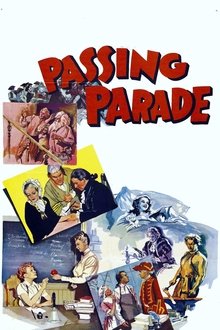
Who's Superstitious? (1943)
This short film examines the origins of several superstitions including crossing your fingers, knocking on wood, rabbit's feet, and breaking champagne bottles to christen ships, plus the role of superstitions in the Flying Dutchman tale.
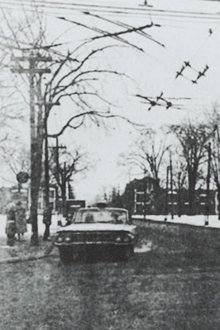
One Second in Montreal (1969)
A silent succession of black-and-white photographs of the city of Montreal.

Planted in 2020 (2020)
Despite a workforce in quarantine, Canada planted almost 700 million trees in 2020 – the most ever. With future forests under threat, a young woman journies into the Canadian bush to endure a grueling and unconventional season of tree planting during a pandemic.

Oh butterfly, what dou you dream of when you flap your wings? (2020)
The work of taxonomists hides more secrets than can be perceived.
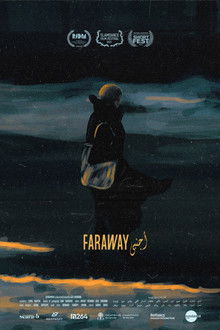
Faraway (2021)
After being estranged from his family, we observe a young man over four seasons and from far away as he navigates his solitude – all the while attempting to reconnect with his mother.
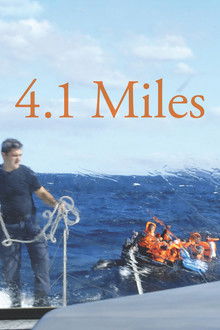
4.1 Miles (2017)
A coast guard captain on a small Greek island is suddenly charged with saving thousands of refugees from drowning at sea.

The Tiger Leaps and Kills, But It Will Die... It Will Die... (1973)
An obituary for Victor Jara, the Chilean folksinger who was murdered in a football stadium by the military junta during the days of the September 1973 coup.

Florence (1975)
Florence is a contemplative study of light and shadows, textures and planes, that makes beautiful use of the tonal qualities of black and white film. (mubi.com)
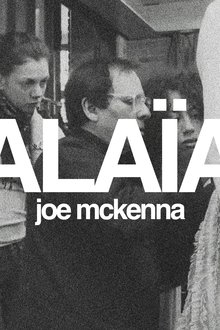
Azzedine Alaïa (2017)
Joe McKenna is one of the most influential stylists in the world. From the beginning of the 1980s, he struck up a great friendship with Azzedine Alaïa, and they continued to work together for many years. Thanks to their mutual understanding and trust, Joe McKenna was able to obtain the rare privilege of entering the studio and the couturier’s workshops with his camera. He paints an intimate and endearing portrait of Alaïa, punctuated by interviews with Nicolas Ghesquiere, Carlyne Cerf, Naomi Campbell and Grace Coddington, among others

The Girl with the Rivet Gun (2020)
Focusing on three women from vastly different backgrounds this film weaves together powerful moments from each of these Rosie's journeys of transformation.
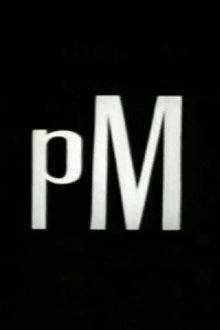
P.M. (1961)
Controversial cinéma vérité analysis of Havana’s lumpenproletariat in waterfront bars and cafés shortly after the failed Bay of Pigs invasion.
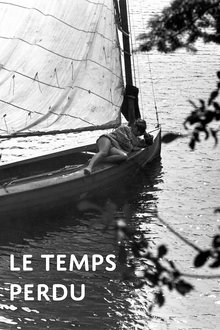
The End of Summer (1964)
A 16 year old girl recalls the last moments of her summer vacation, spent with friends in the Laurentians north of Montreal. She reminisces about their talks on life, death, love, and God. Shot in direct cinema style, working from a script that left room for the teenagers to improvise and express their own thoughts, the film sought to capture the immediacy of the youths presence their bodies, their language, their environment.

The Oil Symphony (1932)
The Oil Symphony is a film about the heroic efforts of Azerbaijani labourers drilling for oil.

The World's Most Famous Train (2015)
During its nine-month-long season, the Venice Simplon-Orient-Express makes over 60 journeys, covering 150,000 kilometres, with the majority of trips between London and Venice. The train is comprised of 17 unique 1920s carriages that have transported a host of elite individuals across Italy, Switzerland, and Turkey for more than a century. This documentary follows the stories of the staff and passengers as the train makes its way across Europe, with some customers having paid more than £2,000 for the privilege.

Living in a Reversed World (1958)
Fascinating -- and unintentionally funny -- experiments at Austria's famed Institute for Experimental Psychology involve a subject who for several weeks wears special glasses that reverse right and left and up and down. Unexpectedly, these macabre and somehow surrealist experiments reveal that our perception of these aspects of vision is not of an optical nature and cannot be relied on, while the unfortunate, Kafkaesque subject stubbornly struggles through a morass of continuous failures.
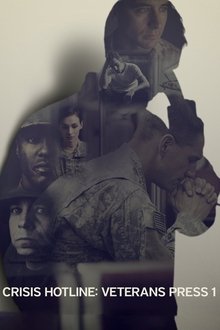
Crisis Hotline: Veterans Press 1 (2013)
According to the U.S. Department of Veterans Affairs, one veteran dies by suicide in America every 80 minutes. While only 1% of Americans has served in the military, former service members account for 20% of all suicides in the U.S. Based in Canandaigua, NY and open 24 hours a day, 365 days a year, the Veterans Crisis Line receives more than 22,000 calls each month from veterans of all conflicts who are struggling or contemplating suicide. This timely documentary spotlights the traumas endured by America’s veterans, as seen through the work of the hotline’s trained responders. CRISIS HOTLINE captures extremely private moments, where the professionals, many of whom are themselves veterans or veterans’ spouses, can often interrupt the thoughts and plans of suicidal callers to steer them out of crisis.

The Sacred Food (2007)
A short documentary about the Ojibwe Native Americans of Northern Minnesota and the wild rice (Manoomin) they consider a sacred gift from the Creator. The film tells the Creation and Migration stories that are central to the tribe's oral history and belief system while showing the traditional process of hand-harvesting and parching the wild rice. Biotech companies are currently researching ways to genetically modify the rice and the community is fighting to keep it wild.
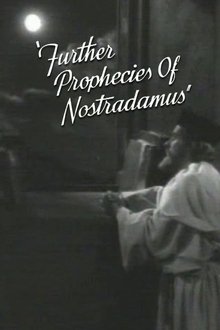
Further Prophecies of Nostradamus (1942)
This short film applies the prophecies of Nostradamus to events of World War II.
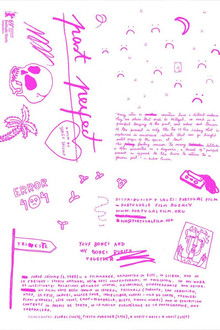
Past Perfect (2019)
Many cities or countries have a distinct malaise. They are places that could be Portugal, so sunk in a painful longing of the past, and where each tension of the present is only the tip of an iceberg that is explained in successive retreats that can go straight until origin of the species, at least. This feeling common to many latitudes is often presented as a diagnosis, a denial of a painful present as opposed to the desire to return to a glorious past.
